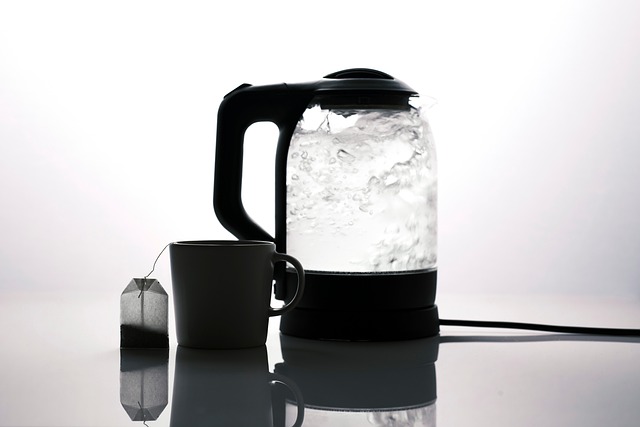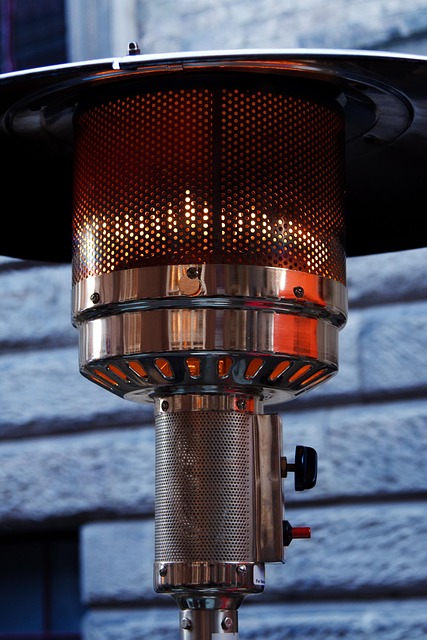If you're experiencing inadequate hot water supply, high energy bills, temperature fluctuations, unusual noises, leaks, or frequent repairs with your outdated water heater, it's time for an upgrade. Modern tankless heaters offer instant hot water, improved efficiency, better safety features, and smarter control systems compared to traditional, less efficient tank heaters that may pose safety risks and waste energy due to poor insulation and sediment buildup. Recognizing Signs You Need a New Water Heater is key to enhancing home safety and optimizing energy efficiency.
Considering an upgrade to a tankless water heater? You’re not alone—many homeowners are embracing this change due to its numerous benefits. Old water heaters often present issues like temperature fluctuations, slow heating times, and safety hazards, leading to increased energy costs. Tankless models offer substantial energy savings, instant hot water, and lower maintenance requirements. This guide will help you recognize the signs that your current heater is outdated and ready for a change, focusing on factors like usage patterns, budget considerations, and lifestyle preferences.
- Signs Your Current Water Heater is Outdated
- – Discuss common issues with old water heaters (e.g., frequent temperature fluctuations, slow heating times).
- – Mention potential safety hazards and energy inefficiencies of outdated models.
Signs Your Current Water Heater is Outdated

If your current water heater is outdated, it might be time to consider an upgrade. One of the clearest signs is inadequate hot water supply. Do you often find yourself running out of hot water mid-shower or during a long bubble bath? This could indicate that your water heater can’t keep up with your family’s demands. Another sign is high energy bills; outdated heaters are less efficient, wasting energy and money. You might also notice frequent temperature fluctuations, where the water is too hot or too cold, lacking consistent heating. These issues often stem from old models that lack modern features like precise temperature control and energy-saving modes.
Additionally, if your water heater is noisy during operation or has developed strange noises, such as banging or rumbling sounds, it could be a sign of internal corrosion or damaged parts. Leaks are another red flag; rusted or corroded pipes around the heater indicate a potential failure point. Old heaters also tend to have shorter lifespans, often requiring frequent repairs or replacements within a decade. As technology advances, newer water heaters offer improved energy efficiency, better safety features, and smarter control systems, making them a compelling upgrade for your home.
– Discuss common issues with old water heaters (e.g., frequent temperature fluctuations, slow heating times).

Many homes still rely on traditional tank water heaters, but there are several signs that it might be time to consider an upgrade. Old water heaters often struggle with maintaining consistent temperatures, leading to frequent fluctuations that can waste energy and increase your utility bills. You may notice hot water that suddenly turns cold mid-shower or vice versa, indicating poor temperature regulation. Additionally, these tanks take longer to reheat after use, causing delays in your daily routines. Slow heating times are a common complaint and often result from sediment buildup inside the tank, reducing its efficiency.
If you’re experiencing these Signs You Need a New Water Heater, such as inconsistent hot water temperatures or prolonged waiting times, a tankless water heater could be the solution. These modern systems provide instant hot water without storage tanks, eliminating temperature swings and significantly improving heating efficiency.
– Mention potential safety hazards and energy inefficiencies of outdated models.

Outdated water heaters can pose significant safety hazards and energy inefficiencies, highlighting the importance of considering a change when it comes to Signs You Need a New Water Heater. One of the primary concerns is the risk of gas leaks or fires, especially in older tank models, which use fuel to heat water. These traditional heaters often lack modern safety features like automatic shut-off valves and improved ventilation systems.
Moreover, old water heaters are notorious for energy waste. They can have poor insulation, leading to significant heat loss over time, resulting in higher energy bills. With advancements in technology, tankless heaters offer more efficient heating processes, providing instant hot water without the need for a storage tank. This not only reduces energy consumption but also saves you money in the long run.
If your water heater is showing signs of aging, such as inconsistent temperature or slow heating times, it might be time to consider an upgrade to a tankless model. Tankless water heaters offer numerous benefits, including energy efficiency, instant hot water, and longer lifespan. By embracing this modern alternative, you’ll not only enhance your home’s comfort but also contribute to cost savings on your utility bills, making it a wise investment for the long term.
